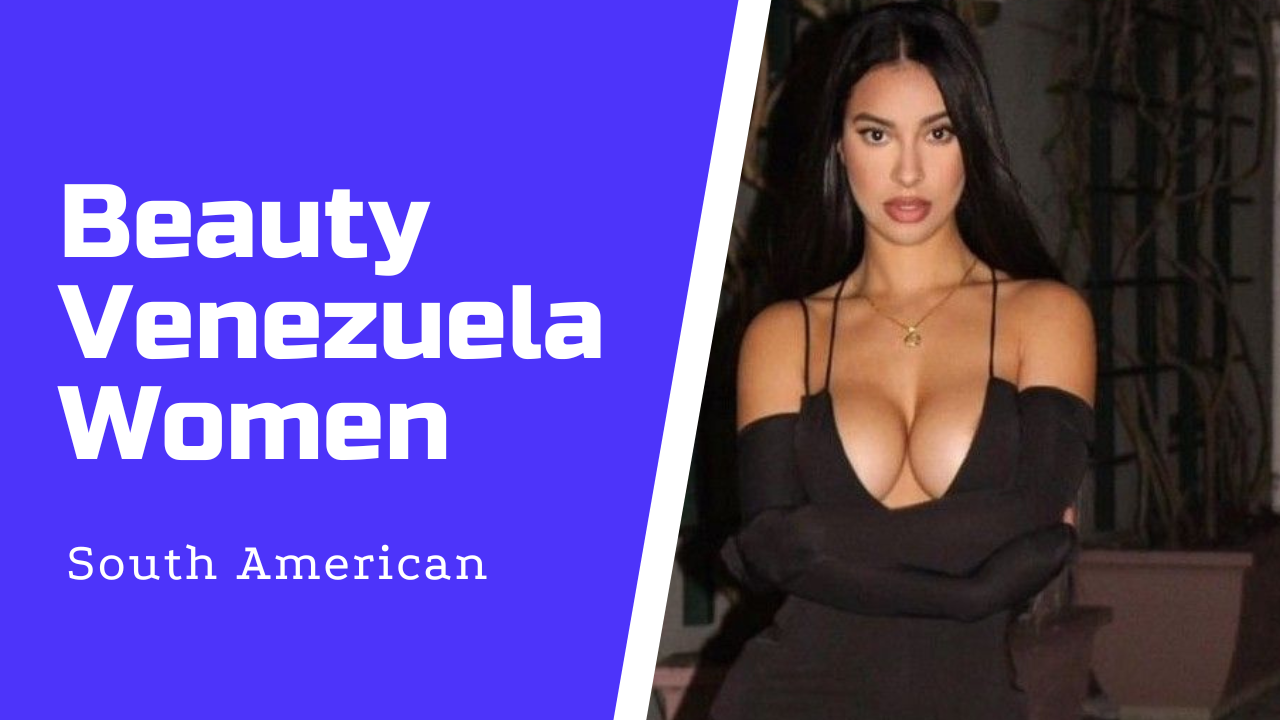Black Venezuelan women have long carried the weight of their communities on their shoulders. Coming from roots often marginalized in both racial and gender aspects, they have emerged as strong, resilient forces of change in Venezuela. Today, women from Venezuela particularly Black Venezuelan women are stepping up in ways that past generations didn’t have opportunities to embrace. From frontline positions in grassroots movements to leadership roles, these women are uplifting one another and empowering their societies.
The history of Venezuela’s population is rich and complex. Afro-Venezuelans, particularly women, have endured centuries of systemic inequalities. Yet despite these obstacles, Black Venezuelan women are shaping change, pushing societal boundaries, and enhancing their influence. They have played key roles in many sectors, from fighting for indigenous land rights and better working conditions to advocating for healthcare and education reforms. These women have demonstrated determination and ambition, even in the face of exclusion and prejudice.
Activism and political engagement have been intertwined with the figure of Black Venezuelan women. Movements led by Caracas women, for example, represent a shift towards a more inclusive society. Their grassroots efforts in impoverished neighborhoods in the capital city are symbolic of wider racial and gender struggles across the country. These women focus on issues such as labor rights, domestic abuse, underemployment, and maternal health, all while challenging entrenched racial and patriarchal attitudes.
Community-building lies at the center of this change. In cities like Caracas, Venezuela, single women have formed networks that transcend geographic locations, spanning rural and urban centers alike. Whether building better educational systems or fighting for land ownership, they are proving that collective efforts are crucial in engineering the progress of women in Venezuela.
How Black Venezuelan Women Are Shaping Cultural Narratives?

Caracas, the capital of Venezuela, has become a central hub for transforming narratives about women and ethnicity within the broader region. Specifically, Black Venezuelan women from this dynamic city challenge longstanding stereotypes that have historically diminished their societal roles. While women in Venezuela have faced issues related to both gender and race, Black women often struggle with the compounded effects of being marginalized by both factors. Nevertheless, Black women from Caracas are subverting these expectations, presenting a new image of sophistication, agency, and leadership.
Traditional depictions of Venezuelan women in the media have often leaned towards lighter-skinned beauty standards. Black Venezuelan women, however, are slowly reclaiming narratives by emphasizing diversity, intellect, and activism over outdated portrayals of superficial beauty. This shift is helping to redefine what it means to be Venezuelan and a woman in a way that includes everyone, irrespective of race or skin color.
The vibrant art scene headquartered in Caracas reflects this change. Female-led collectives are promoting Afro-Venezuelan heritage through art, dance, music, and literature. They create projects celebrating Black Venezuelan women’s identity and heritage, preserving these often overlooked parts of Venezuela’s complex fabric. These women belong to movements which actively dismantle the misconceptions that stigmatized communities cannot be both traditionally beautiful and intellectual all at once.
Aside from artistic representation, Black women in Venezuela have also begun taking on prominent roles in politics, legal professions, and activism. Venezuela single women and married women alike have shown how professional roles are no longer bound by their gender or racial status. These shifts have important implications for the younger generation of Venezuelan women, who can look up to Black female professionals spearheading initiatives and influencing policies.
Political activism is also leading to positive outcomes for women across the country. Caracas Venezuela women frequently engage in community workshops, protest marches, and other forms of activism that reinforce their position in driving gender equality. Women from both urban and rural sectors lobby for issues such as labor rights and wage equality, taking their experiences from grassroots advocacy to even broader platforms. The visibility of these efforts suggests a future where Venezuelan women can be valued on more equal terms.

Education remains one of the most powerful areas where this new generation of Caracas women is asserting influence. Black educators, teachers, and female academics are intense sources of knowledge and inspiration. In school systems where access to quality education has often been unequal, these women strive for a more equitable system that expands opportunities for children of all backgrounds. Their teaching methods integrate discussions about racial and gender issues, empowering girls to become capable leaders while challenging historical inequalities within the educational structure.
Across all sectors, Venezuelan women’s struggles are being recognized on an international scale. Recognition of women’s achievements particularly Black Venezuelan women has extended to international platforms, such as advocacy groups, human rights organizations, and other initiatives from countries that support their work. This international attention reinforces how the survival and success of Venezuelan women signal broader shifts in the global conversations around gender and race-based movements.
In addition to forming their own organizations, Black Venezuelan women are engaging with international coalitions to raise awareness about human rights and economic issues affecting their communities. These actions bolster efforts to bring more visibility to their cause while fostering cross-cultural understanding of shared struggles across Latin America and beyond.
Equally important are the roles that Caracas women are playing in economic resilience. Entrepreneurship initiatives are growing among Black Venezuelan women, many of whom run thriving businesses in sectors such as fashion, design, and catering. Through perseverance and a drive for self-determination, these small businesses are fostering economic empowerment within their communities. Venezuela single women, particularly those who head households, are benefiting from these models, finding alternative income sources that remove them from dependency. Ultimately, Venezuelan women, united in their common cause of empowerment, are taking large strides towards creating an economy that embraces inclusivity and equity for every group.
Overall, Black Venezuelan women are reshaping not only local communities but the global perceptions of their country. Their strength, collaborative efforts, and meaningful contributions are undeniable testaments to their impact on shaping Venezuela’s complex mosaic of identity and struggles. As they continue to redefine their places in society, the influence of Black women in Venezuela grows across multiple spheres, reaching far beyond the mere pursuit of gender equality.

Women from Venezuela Reclaiming Their Power in a Changing Society
The shifting socio-political environment in Venezuela has amplified many voices, and among them, women are leading significant conversations about equality, identity, and community. Particularly in Caracas, women especially Black Venezuelan women are driving powerful movements that challenge traditional social norms. Despite the complex challenges in Venezuela, the rise of activism, feminist thought, and renewed cultural pride has made these women an enduring force at a time when, for many, survival comes first.
Historical Context of Women in Venezuela
The role of women in Venezuela has long been intertwined with cultural expectations that emphasize traditional gender roles, particularly within the family structure. Many women from Venezuela were expected to take on homemaker roles, and opportunities for broader social involvement were limited. However, the economic crises and political turmoil of the last few decades have reshaped the country’s landscape.
This transformation has led to a shift in how women view themselves and the expectations placed upon them. Venezuela single women and mothers, many from working-class backgrounds, have found themselves increasingly responsible for providing for their families. In this context, Caracas women have had to embrace resilience and resourcefulness, actively participating in the informal economy or standing at the forefront of grassroots movements seeking change.
Black Venezuelan Women Reclaiming Identity

Afro-descendant women in Venezuela have been particularly marginalized, both through racial discrimination and sexism. For generations, Black Venezuelan women were subject to societal norms that stripped them of their voices and opportunities. Stereotypes and deep-seated racial biases added an additional layer of invisibility for many who were already struggling against poverty and patriarchal structures.
Despite these barriers, Black Venezuelan women are now redefining their roles and celebrating their heritage. Activism spearheaded by Afro-Venezuelan women has focused on political participation, land rights, and fighting racial discrimination. They are asserting themselves in spaces historically kept out of reach, from art and music to entrepreneurship and education reforms. These women are reshaping Black identity in Venezuela and making it clear that their voices deserve amplification.
The Role of Caracas Venezuela Women in Feminist Movements
In the capital city of Caracas, Venezuela, women are particularly active when it comes to feminist movements. Feminism here isn’t a concept imported from abroad; it’s rooted in local and urgent needs. Economic disparities have led to a significant uptick in gender-based violence, domestic abuse, and workplace discrimination against women in Venezuela.
Caracas women are participating in grassroots organizations, taking to the streets with protests and petitions and demanding government action on issues like reproductive rights, violence prevention, and equal pay. While feminists from Venezuela come from all racial and economic backgrounds, Black Venezuelan women find their struggles to be distinct they not only face gender-based oppression but also experience racial prejudice that compounds these challenges.
The Growing Influence of Women-Led Entrepreneurship in Venezuela

Entrepreneurial ventures by women in Venezuela are flourishing in surprising ways. As the national economy has become more unstable, more women have chosen to find new avenues for income, often igniting their creativity and starting small local businesses. From food markets to fashion and technology projects, many Venezuela single women have risen to the occasion by using networks of mutual support and online platforms.
This booming female-led entrepreneurial spirit can be seen particularly in Caracas. Caracas Venezuela women have tapped into both domestic and global markets through innovative business ideas, often drawing on Venezuelan culture as inspiration. The internet has been critical in promoting these businesses, connecting Venezuelan women with a wider consumer base and helping to create new opportunities that previously didn’t exist. Their influence extends beyond their economic contributions they are reshaping how leadership and business acumen are viewed in a society where patriarchal values traditionally thwarted such aspirations.
Afro-Venezuelan Cultural Renaissance and the Role of Women
The current cultural revival among Black Venezuelans places particular importance on the role of women as preservers and promoters of Afro-Venezuelan heritage. Music, dance, art, and literature born from Afro-Venezuelan traditions are gaining prominence, and women are often the driving forces behind these expressions. Through these forms of cultural celebration, they challenge stereotypes and shift public awareness toward the contributions of Afro-Venezuelan culture. At festivals, workshops, and performances, Black women participate actively in rewriting Venezuela’s cultural script.
In rural areas and urban centers alike, Black Venezuelan women are using performance and the spoken word to communicate the resilience of their ancestral roots. Their work moves beyond personal empowerment and becomes an act of community healing, reaching across social and cultural divides while igniting conversations about race and identity. Within both these artistic expressions and civic organizations, their efforts have given rise to a new public consciousness where issues of inequality are addressed head-on.

Challenges Facing Women from Venezuela Today
Sustained political instability, hyperinflation, and widespread poverty have placed extraordinary burdens on the everyday lives of women in Venezuela. Healthcare shortages, food insecurity, and insufficient public services mean that many Caracas women face significant challenges when seeking basic necessities. Among Black Venezuelan women, these challenges are even more pronounced. The economic downturn has exacerbated gaps in access to education, employment opportunities, and political representation.
Furthermore, domestic violence remains pervasive across the country, with underreporting and inadequate legal protection further complicating the lives of women and children. Advocacy organizations led by Venezuelan women continue to push for reforms, demanding increased state-led protections and better systems of accountability for violators of women’s rights.
Resistance and Solidarity Through Activism
The rise of women-led social movements in Venezuela is fueling grassroots activism. Women’s collectives have formed across the country in response to widespread inequalities that disproportionately affect Venezuelan women. They promote a blend of resistance and solidarity, allowing for community-driven efforts to fill the gaps left by the crumbling social system.
In this environment, black venezuelan women are finding strength in numbers. Networks of activists are surfacing, some working explicitly on issues of race alongside their gender activism. This coalition-building is a vital element in their empowerment, amplifying their demands and pressuring local and national governments to address the systemic racism and sexist policies that dominate the landscape.
These collectives use a variety of strategies, including public demonstrations, online outreach campaigns, and collaborative community organizing, fostering connections across the country’s economic divides. In impoverished parts of Caracas, efforts include distributing food and providing safe spaces to discuss personal and political empowerment.
A Commitment to Social Change

Given Venezuela’s volatile politics, the persistence of women’s voices in pursuit of equality is remarkable. Despite living in an atmosphere marked by corruption, authoritarianism, and economic despair, Venezuelan women are leveraging their power and skill to build new and important alliances. Their activism speaks to a larger commitment to social change, a collective desire for justice, and a better future especially for the most marginalized groups.
Black Venezuelan women in particular play a crucial role in shaping the future of equality and human rights in the country. Their contributions hold enormous potential to shift perspectives not only in Venezuela but across Latin America more broadly.
In times of crisis, women in Venezuela push back against retrogressive practices, patriarchy, and racism choosing resistance, entrepreneurship, and cultural reclamation instead. Their efforts continue to influence discussions and guide the nation towards a broader and more inclusive vision of human rights and dignity.
Redefining Independence and Empowerment
Single women in Venezuela, especially afro-descendant women, are playing key roles in reshaping social and economic paradigms across the nation. In urban centers like Caracas, Venezuela’s capital, many women have embraced new definitions of independence by navigating complex socio-political landscapes driven by economic hardship and cultural evolution.
For black Venezuelan women, these challenges are uniquely compounded due to long-standing marginalization and limited access to traditional opportunities for wealth generation. Yet, Caracas has witnessed a surge of resilient women from all backgrounds joining or leading efforts to reshape their futures, not just in terms of financial independence, but in areas of social empowerment too. The shifting dynamics have broader implications, both personally and at the community level, strengthening the resolve of many Venezuelan women.
Economic Independence in Difficult Times

The Venezuelan economic crisis has intensified since the early 2010s, and women, including those in major urban centers like Caracas, have had to find innovative ways to ensure their livelihoods. Venezuela’s single women, in particular, have faced an uphill battle but have demonstrated tenacity in carving out income sources ranging from informal trade to small business ventures. These economic activities often serve as a financial buffer, helping these women to become breadwinners in a collapsing economic system, where inflation can make everyday commodities challenging to secure.
Informal economies, street vending, and freelance work have emerged as key avenues for Caracas Venezuela women to bridge the gap in a society where wage jobs have dwindled. Even more noteworthy is the increasing role of these women in leadership positions within such informal economies, where decision-making roles were once predominately male.
This shift has also been an important factor in reshaping family dynamics, where women Venezuela are being viewed as essential, if not primary, providers. Such transformations aren’t merely economic; they’re social. Women are earning the respect and recognition they deserve for their contributions, raising questions about traditional gender roles, especially in Afro-Venezuelan communities.
Fostering Autonomy and Personal Empowerment
For single women in Caracas, autonomy begins with access to opportunities that were long believed to be outside their reach. Rather than depending on traditional familial or matrimonial structures for financial security, many have placed their goals at the forefront by embracing educational opportunities and seeking advancements in technology. The growing digital economy, despite its limitations in Venezuela, has opened virtual spaces for women to offer services such as tutoring, translating, or even beauty consulting.
Local female entrepreneurs are rewriting the rules of survival and expansion. These Caracas women build employment models based on practicality while keeping their aspirations alive in uncertain situations. Technology-driven solutions such as online sales, remote customer service roles, and content creation are just a few areas where women have carved paths toward self-sufficiency.
There is also a focus on collaboration among women from Venezuela, especially single women. Social networks, both in-person and virtual, encourage shared learning and increased access to knowledge about business strategies, financial literacy, and self-advocacy.
Empowering Afro-Venezuelan Communities

Women in Venezuela, particularly from Afro-Venezuelan backgrounds, have been central figures in fostering social change. They are rising as leaders in community organizing, bringing attention to systemic injustice and working to improve conditions for marginalized communities.
Historically, black Venezuelan women faced double layers of discrimination, both in terms of race and gender. As these communities have been gradually gaining more focus within these efforts, so too have black Venezuelan women asserted themselves as integral agents of change within traditionally patriarchal structures.
Central Figures in Advocacy and Grassroots Movements
A key area where women in Venezuela have had a significant impact is in grassroots organizing and advocacy. A notable trend has been the rise of cooperatives and mutual aid groups led by women who are addressing critical issues such as food insecurity, educational access, and racial inequality. Within Afro-Venezuelan communities, where economic marginalization has been particularly harsh, these organizations ensure that resources are not only distributed fairly but are used to empower otherwise vulnerable families and individuals.
Cooperatives are often run by Venezuelan women who wear many hats. As directors and coordinators, these women facilitate skill-sharing among community members, fostering environments where practical knowledge is passed down, promoting self-sustainability. Many of these efforts are seen in the housing sector, food cooperatives, and health initiatives run by these women executed with a sense of cohesion and resilience. Their collective effort has sometimes garnered international attention for the ways they continue to adapt systems that benefit a broader swathe of citizens.
Shattered Stereotypes Through Education and Representation
Representation, particularly for Afro-Venezuelan women, has improved in recent years, partly due to increasing visibility in the areas of art, culture, and education. Women are more often the public *faces* of social movements, including feminist movements tackling race-based discrimination. Beyond educational spaces, their influence extends to the public imagination through contributions in the performing arts, music, literature, and visual arts.

The emergence of black Venezuelan women occupying space whether by leading in popular media or engaging through activist platforms continues to dispel outdated cultural stereotypes about what roles women, especially Afro-descendant women, can inhabit. This contribution not only reshapes national discourse; it also creates spaces where the next generations can follow in their footsteps with more systemic support.
Challenges and Stereotypes Persisting
Despite all of these strides, systemic challenges persist. Stereotypes about race and gender still haunt sectors of the economy and social standing. Many Caracas women, especially those from Afro-Venezuelan communities, find it harder to escape the invisible ceiling assumed by certain demographics. Social mobility is particularly constrained for women who have limited access to education or job flexibility, often further isolating black Venezuelan women. Gender-based violence and issues of safety also continue to be prevalent and require substantial national and community-driven responses.
Black women often find themselves stereotyped in ways that limit their social progression. Their pursuits in non-traditional work environments or leadership roles can be subtlety undermined by the perceptions that prioritize lighter-skinned or mixed individuals for opportunities. These manifestations of endemic racism require ongoing work by collectives to shift cultural assumptions.
Looking Toward Economic Justice and Inclusion

Legal frameworks and activist-driven agendas focusing on the economic rights of black Venezuela’s single women are now gaining traction. Sustainable economic models are being discussed not only among policymakers but by grassroots leaders who represent the interests of women-held communities.
While the economic conditions across Venezuela remain fraught, technological investments and informal economies with more acknowledgment of black Venezuelan women contributors have laid the foundation for economic justice. Such efforts include the introduction of labor laws aiming at greater inclusivity, as well as government programs seeking to better serve marginalized groups.
Economic and political inclusion will likely remain focal points moving forward, especially as national and international attention to Venezuela’s complex history regarding race and gender gaps grows. Women-led movements, defined in part by their tenacity, will remain central to socio-economic transformations.
